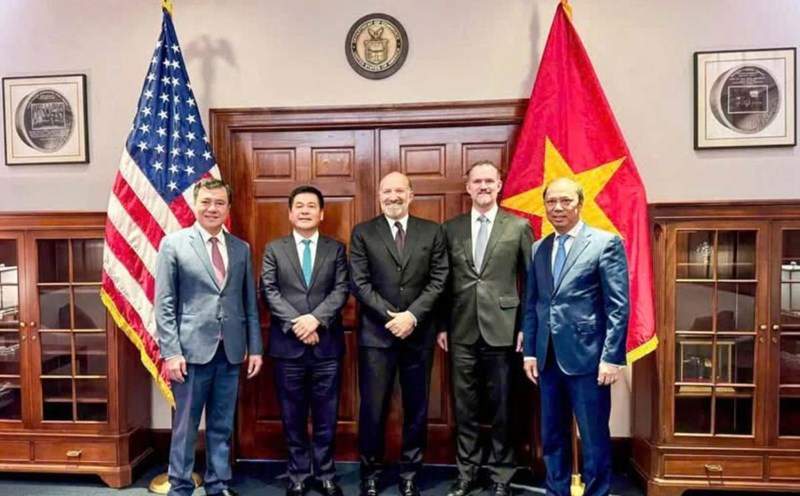VNA reported that on June 18, the US Food and Drug Administration (FDA) approved Lenacapavir of Gilead - a drug injected with a twice-dose per year - to prevent HIV infection in adults and adolescents.
Lenacapavir - part of a group of drugs known as capsid shell inhibitors - has proven nearly 100% effective in preventing HIV in large-scale studies last year, raising new hope in preventing the transmission of the virus to 1.3 million people per year.
Investors and AIDS prevention and control activists have eagerly awaited the management decision for the drug that could help end the 44-year-old "disease of the century".
HIV vaccines, known as pre-exposure prophylaxis or PrEP, are widely sold, but most are daily pills that require strict compliance to be effective.
Responding to the FDA's decision, CEO of Gilead Sciences, Mr. Daniel O'Day affirmed: "This is an important moment. We believe that Lenacapavir is the most important tool we have to change the course of the epidemic and include this disease in the history book".
Gilead Sciences - a pharmaceutical company based in Foster City (California) - plans to quickly launch this drug in the US as well as deploy this drug more widely through cooperation with global partners. This drug will be sold under the Yeztugo brand name in the US with a listed price of $28,218/year.
The company's "ultimatum" is to normalize PrEP use in both the US and other countries, including low-income African countries, where the virus is most common, says Johanna Mercier, sales director of Gilead Sciences.
This drug is being sold in the US under the brand name Sunlenca for patients with end-stage AIDS and resistance to other drugs.
In December 2024, the President's Emergency Relief Plan for AIDS Prevention (PEPFAR) under President Joe Biden signed an agreement with the Global Fund for AIDS, Labor and Malaria to provide treatment for up to 2 million people in 3 years if approved by the US regulatory agency for prevention.
AIDS campaigners see the drug as a significant slowdown of the epidemic, but President Donald Trump's Trump administration's cut in PEPFAR has raised concerns about the US government's commitment to implementing the program.
Mr. O'Day admitted that these changes are "very difficult", but said the company continues to discuss with both the Global Fund and PEPFAR.








